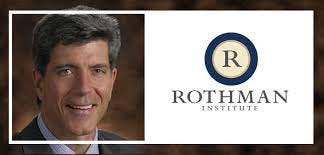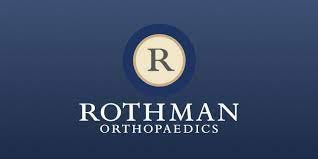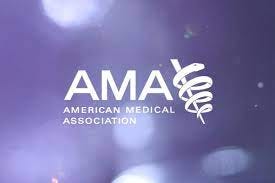Doctors Protect Negligent Doctors and Will Not Testify Even If They Are The Treating Doctors
Lawyers Are Required by Professional Rules to Report Misconduct and Even Police Officers Are Now Coming Forward to Testify Against Bad Cops
Doctors, through legislative lobbying, have prevented most states from adopting rules requiring doctors to report misconduct by other doctors. They also prevent states from adopting rules requiring doctors to testify in cases of medical malpractice when a patient was harmed by another doctor. Most of the state medical boards do not have any Code of Ethics applicable to doctors dealing with medical testimony.
The American Medical Association has published a Code of Medical Ethics, but it appears not to have been adopted as the law by any state medical board. So doctors feel free to ignore their own AMA Code of Medical Ethics.
Doctors have managed to keep themselves in the same position as Justices of the U.S. Supreme Court, who also have no Code of Judicial Conduct governing their action. All district court and appellate federal court judges are bound and obligated to follow the Judicial Canons of Ethics adopted by the Judicial Conference of U.S. Courts. But not the Justices of the Supreme Court who claim they can regulate themselves, though there is no evidence of any such self-regulation by the Supreme Court Justices. The recent leak of the Alito draft opinion in the Dobbs abortion decision is one prominent example, and Justice Thomas action in not recusing himself when Trump filed a motion to prevent disclosure of calls and texts to his Chief of Staff, Mark Meadows, when we know that Thomas’ wife Ginni sent some of the text messages that were ordered disclosed by the other Justices, and Thomas dissented apparently to protect his wife.
And what has Chief Justice Roberts done about any of this: apparently nothing. We have not even received the report of his investigation initiated by the Court’s Marshal into the Alito leak. I previously posted a Newsletter speculating, with good evidence, that Thomas was the Alito Opinion leaker.
Now how about police officers? Every police department has rules and regulations governing the conduct of police officers, and many require police to report acts of misconduct by other officers. Until recently, those rules were often ignored with police refusing to testify against other officers, but of late there has been more reporting by police of misconduct and abuse by other officers. Of course, some of that reporting has come from officers involved in the questionable conduct who strike a bargain to testify against other officers to avoid their own prosecution. But after the George Floyd killing over purchase of cigarettes and prosecution of all of the officers involved, some in the police ranks are becoming more aggressive in reporting misconduct by other police.
Even in the military there have been examples of junior officers and enlisted soldiers reporting misconduct by other officers or soldiers. A case in point was the reporting of abuse of a corpse by an officer in Afghanistan that was reported by others under his command and resulted in a Court martial of the officer. Of course, former president Trump, in order to incite his MAGA crowd, pardoned the offending officer and had him released.
So lawyers, police, and members of the military are obligated to follow Ethics Rules and Codes of Conduct. And they can be disciplined under those rules or prosecuted if the facts warrant.
But doctors and Supreme Court Justices have managed to remain not subject to lawfully binding ethics rules.
The American College of Surgeons has published guidelines and rules for surgeons regarding testifying as a medical expert which seem to be ignored by many surgeons. The ACS states:
Physicians understand that they have an obligation to testify in court as expert witnesses on behalf of the plaintiff or defendant as appropriate. The physician who acts as an expert witness is one of the most important figures in malpractice litigation. In response to the need to define the recommended qualifications for the physician expert witness and the guidelines for his or her behavior, the Patient Safety and Professional Liability Committee of the American College of Surgeons has issued the following statement.
Failure to comply with either the recommended qualifications for the physician who acts as an expert witness, or with the recommended guidelines for behavior of the physician acting as an expert witness may constitute a violation of one or more of the Bylaws of the American College of Surgeons
The AMA actually aided and abetted doctors so that they are not obligated to testify in medical malpractice cases by amending their own rule in the AMA Code of Medical Ethics, Code Section 9.7.1. That Code now states:
Medical evidence is critical in a variety of legal and administrative proceedings. As citizens and as professionals with specialized knowledge and experience, physicians have an obligation to assist in the administration of justice.
Whenever physicians serve as witnesses they must:
Accurately represent their qualifications.
Testify honestly.
Not allow their testimony to be influenced by financial compensation. Physicians must not accept compensation that is contingent on the outcome of litigation.
Prior to the latest AMA statement, the Code of Medical Ethics had the following sentence which was deleted from the latest version of their Code:
If a patient who has a legal claim requests a physician’s assistance, the physician should furnish medical evidence, with the patient’s consent, in order to secure the patient’s legal rights.
Many doctors refuse to testify in medical malpractice cases. Of course, their reluctance to testify disappears when they are asked to testify for the defendant for an appropriate fee paid by an insurance company.
I recently had an experience with the Rothman Orthopedic Institute, a prominent and highly credentialed orthopedic practice headquartered in Philadelphia and with offices in New York, New Jersey and Florida. After being bounced around several times to various persons, I was finally told that the Rothman Institute surgeons do not and will not testify in any medical case even when they are the treating, examining surgeons. I wrote to Dr. Alexander Rothman, CEO of the Rothman Institute, and he has very impressive credentials with not only an M.D. but also a PhD and a M.B.A. Surely I could reason with such an eminent physician. But despite three letters, I could only rate a call from one of his assistants informing me of their inviolable blanket non-cooperation policy. Their blanket policy of not testifying in any medical malpractice case for the plaintiff, though they may testify for a doctor or hospital as a defendant, seems to violate both the Rules of the American College of Surgeons and the AMA Code of Medical Ethics Section 9.7.1.
Having known their namesake, Richard Rothman, M.D. who performed several surgeries on my wife, and was a stellar surgeon before he died of cancer after he worked right to the end, I would hope he would not support such a negative blanket non-cooperation policy. But he did not have an M.B.A.
Though these associations might consider disciplinary action against their members, that would be discretionary with them. If the American College of Surgeons Rule and the original AMA Code of Medical Ethics were adopted by state medical boards, there would be a way for injured plaintiffs to secure an expert witness needed to present a medical malpractice case in court.
But by lobbying against adoption of mandatory rules by state medical boards, doctors have created their own blue wall of non-cooperation in testifying in medical malpractice cases against doctors and hospitals.
It is not only Supreme Court Justices who are Ethics Free, the nation’s doctors have also managed to insulate themselves from the need to testify and give preliminary medical reports necessary to file a medical malpractice cases even on behalf of their own patients, as is the case with the famous Rothman Orthopedic Institute.
Doctors have created their own blue wall, with even more effect than that previously used by police, as without a medical opinion, an injured party cannot even file a medical malpractice case in most states.
State legislative and regulatory action to adopt rules governing medical expert opinions would help many people obtain justice
.








